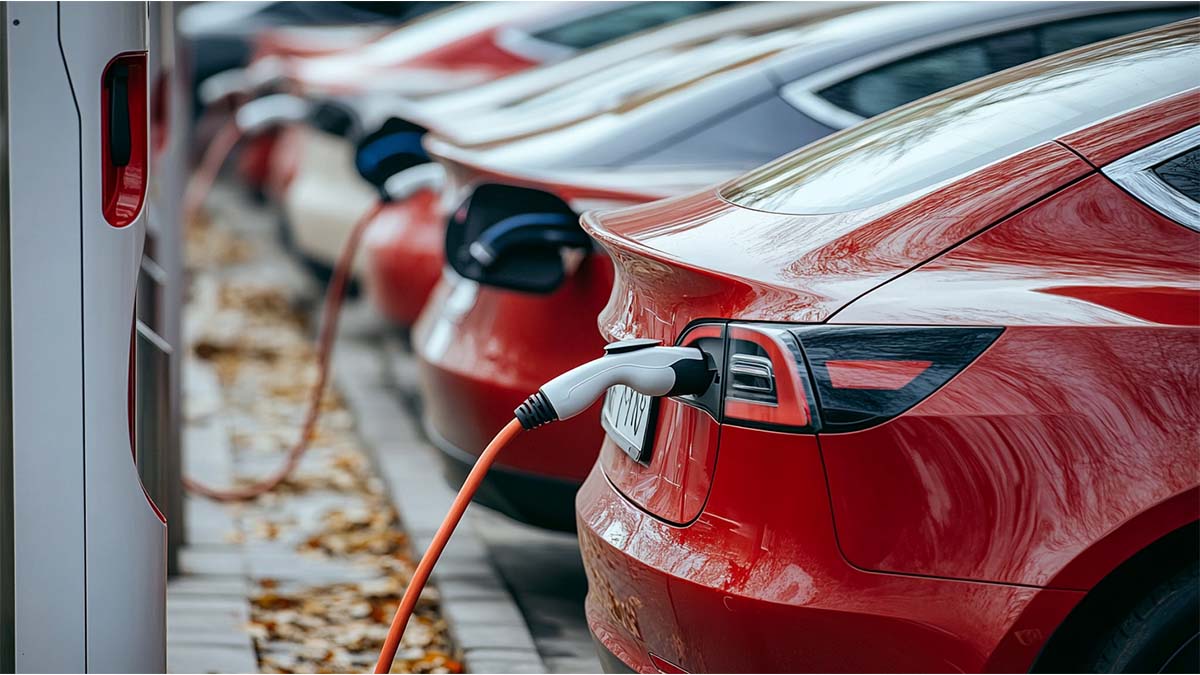 Practical Guide to EV Extension Cable Adapters in 2025: Solving Distance and Compatibility Issues
Practical Guide to EV Extension Cable Adapters in 2025: Solving Distance and Compatibility Issues
Feb 25, 2025
Why EV Extension Cable Adapters Matter More Than Ever As electric vehicles become more common on roads worldwide, the need for flexible and reliable charging solutions is growing. One recurring issue among EV users is the mismatch between charger cable length and the vehicle's parking location. Another is the variation in connector types between regions and charger models. EV extension cable adapters offer a straightforward solution to both problems.
In this guide, we'll explore how these adapters help overcome real-world charging challenges, how to choose the right one, and why they are essential for EV owners, fleet operators, and charging infrastructure providers.
Issue
Real-World Scenario
Solution
Limited cable reach
Public charger is too far from the EV inlet
Use a compatible extension cable
Incompatible connectors
Type 1 EV arrives at a Type 2-only charging station
Use a Type 1 to Type 2 adapter
Shared charging stations
Fleet vehicles require standardized charging setups
Use adapters to bridge connector differences
1、Understanding the Core Problems: Charging Distance & Connector
Compatibility
Key Insight: An EV extension cable adapter acts as a bridge—not just physically, but also in terms of electrical compatibility and charging convenience.
2. Types of EV Extension Cable Adapters and Their Applications
1、Type 1 to Type 2 – For North American vehicles using J1772 connectors to access Type 2 chargers (common in Europe).
2、Type 2 to Type 1 – For European EVs needing to charge from Type 1 stations.
3、Type 2 Extension Cable (Male to Female) – Extends existing Type 2 cable length, useful in home garages or tight public spots.
4、CHAdeMO and CCS Adapters – Often used by fleet operators handling mixed EV types.
Each type varies in amperage capacity, IP rating, cable length, and plug materials.
3. How to Choose the Right EV Extension Adapter
Criteria
Recommendation
Connector type
Confirm your EV inlet and charger outlet types
Charging level
Level 2 AC charging typically up to 32A; make sure adapter supports the load
Cable length
5–10 meters is typical for extension cables
Durability
Look for IP54 or higher rating for outdoor use
Certifications
Choose products with CE, TÜV, or UL certifications for safety assurance
Here’s a structured approach to selecting the most appropriate adapter:
Pro Tip: Avoid using extension adapters on DC fast chargers unless certified and explicitly allowed by the charger manufacturer.
4. Safety and Performance Considerations
Using a poorly constructed or mismatched adapter can lead to overheating, short circuits, or damage to the vehicle and charger. To ensure optimal safety:
Always match voltage and current specifications.
Check for internal thermal protection.
Inspect connectors regularly for wear and corrosion.
Don’t exceed the rated power capacity of the adapter.
According to a report by the European Alternative Fuels Observatory (EAFO), over 18% of EV charging complaints in Europe stem from cable or plug compatibility issues—most of which are avoidable with the right adapter.
5. Where EV Extension Adapters Make the Biggest Difference
Home charging: When driveway layouts limit how close you can park to the wall charger.
Workplaces & Apartments: Shared parking spots often require extra reach and compatibility.
Public stations: Many EV users report chargers being blocked or poorly located.
Fleet depots: Operators managing multiple brands benefit from standardized extension adapters.
Case Example: In Berlin, a car-sharing service reduced vehicle downtime by 22% after equipping their fleet with Type 2 extension adapters, solving distance and socket type conflicts at mixed-use charging hubs.
6. Cost vs. Value: Are Adapters Worth It?
Factor
Cost Estimate (EUR/USD)
Value Addition
Type 2 Extension Cable
80–150
Solves distance, improves daily usability
Type 1 to Type 2 Adapter
60–100
Enables cross-region charging compatibility
Safety-rated accessories
Slightly more expensive
Protects EV and charger, ensures longevity
Compared to the cost of relocating a charger or installing new infrastructure, these adapters are a low-cost investment with high convenience returns.
7、Why You Should Consider Investing in One
As EV adoption continues to rise, ensuring seamless access to charging points—regardless of location or connector type—becomes increasingly important. EV extension cable adapters offer flexibility, convenience, and a practical solution to everyday challenges faced by drivers and operators.
If you're looking to improve your EV charging experience or minimize vehicle downtime in your fleet, investing in high-quality, safety-certified extension adapters is a smart and affordable move.
Explore Our Range Ready to make charging easier? Browse the full range of certified extension adapters at Workersbee
Read More

 Practical Guide to EV Extension Cable Adapters in 2025: Solving Distance and Compatibility Issues
Practical Guide to EV Extension Cable Adapters in 2025: Solving Distance and Compatibility Issues